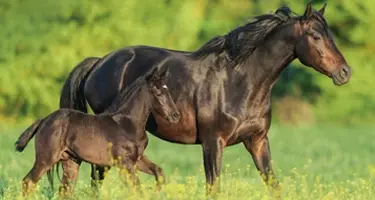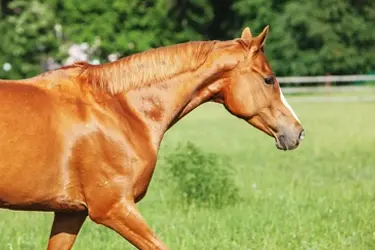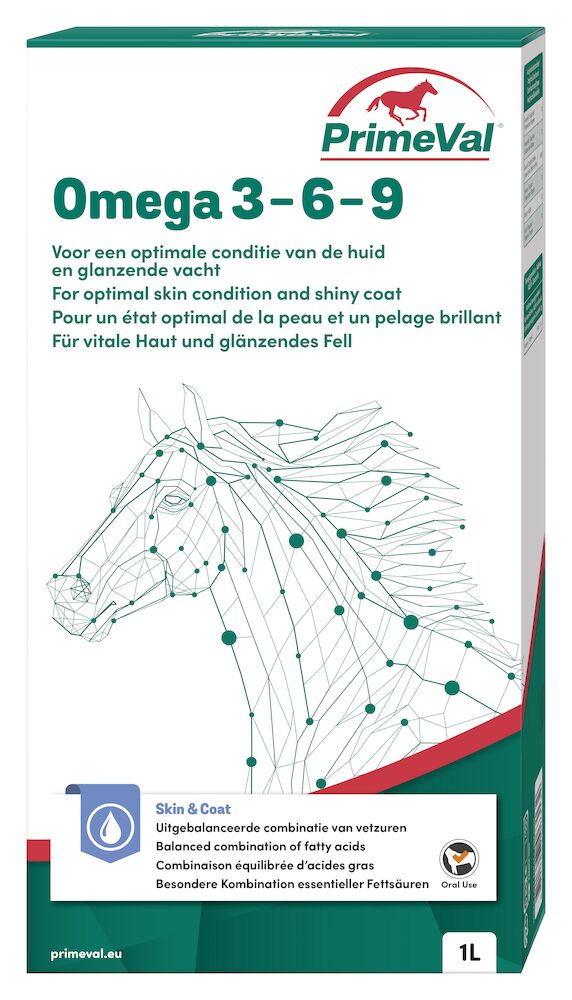Omega 3-6-9 oil for a healthy skin and shiny coat
We like to see a horse with a nice shiny coat, as the coat reflects health. There are different periods and circumstances when this is less present. If your horse has a dull coat, difficulty moulting in the moulting period or skin problems, supplementing the ration with Omega 3-6-9 fatty acids can help improve the coat condition.
These polyunsaturated fatty acids help keep the skin and coat in optimal condition. In addition, it is a very healthy daily supplement with several other benefits. For example, it has a positive influence on the overall condition of your horse and is a good support in times of recovery after illness, stressful situations and reduced resistance. Besides this, Omega 3-6-9 oil is a good source of energy for sport horses.
What do Omega 3-6 and 9 and fatty acids do?
There are different types of Omega fatty acids. These fatty acids also have complementary effects on each other. A combination of Omega 3-6 and 9 fatty acids is recommended when choosing a supplement. Below is a short description per fatty acid of the health benefits it can offer your horse.
- Omega 3 fatty acids
Omega 3 fatty acids are known for their positive effects on health. Horses cannot synthesize this themselves and therefore must take it from the diet. Omega 3 have an effect as antioxidants. In this way they have a protective effect on the cells. Omega 3 fatty acids also have a positive influence on resistance and have an anti-inflammatory effect. These fatty acids are important for overall health and especially for muscles and joints. Finally, Omega 3 fatty acids contribute to a balanced hormone balance and are good for the skin.
- Omega 6 fatty acids
Omega 6 fatty acids are particularly good for your horse's skin and mucous membranes. The horse cannot produce these Omega fatty acids itself either. Horses need higher levels of Omega 3 fatty acids compared to Omega 6 fatty acids. Also, Omega 6 fatty acids play a positive role in fertility.
- Omega 9 fatty acids
Omega 9 fatty acids counteract the oxidation of Omega 3 and 6 fatty acids. So a combination with Omega 9 fatty acids in such a supplement is recommended. Omega 9 fatty acids are important for skin cells and therefor have a positive effect on the skin and coat. Omega 9 fatty acids also support the heart and blood vessels. In humans, these specific fatty acids are also known to have a positive effect on cholesterol levels.
Make supplements match your horse’s ration
Have a good look at your horse's ration when giving supplements. Fresh grass naturally contains Omega 3 and 6 fatty acids. If your horse is fed mainly hay or limited fresh grass, it is a good idea to supplement these fatty acids with a supplement. When grass is dried, most of the Omega fatty acids are lost.
Omega 3-6-9 oil is a valuable daily supplement, although it can of course be given seasonally. During the moulting period, Omega fatty acids can help renew the coat more easily. In this period there is often less fresh grass available so a supplement is definitely recommended. The moulting period also requires extra energy from the horse, in which Omega fatty acids provide important support.
How do you determine the quality of an Omega 3-6-9 supplement?
There are lots of different types of oil available, so how do you determine the difference in quality and therefore partly the price?
1. First, look at what different types of Omega fatty acids the supplement contains. A combination of Omega 3-6 and 9 fatty acids is the most complete and provides the best support.
2. Look at the sources from which the various Omega fatty acids are found. A supplement that is not well eaten is obviously not a valuable addition. Many Omega-3 oils are made from fish oil, since horses are picky they often do not like that. Therefore, opt for a completely vegetable supplement.
3. A combination of different sources of vegetable oils generally offers additional benefits. For example, a combination of flaxseed oil, sesame oil, sunflower oil, pumpkin seed oil and evening primrose oil works complementarily. The oils not only differ from each other in terms of fatty acid composition, but also differ from each other in terms of antioxidants, vitamins and minerals. They complement and reinforce each other in action.
4. See what other extras the oil contains. In fact, some oils also contain additional natural vitamin E. Vitamin E is known for its anti-oxidative effects. Vitamin E also occurs naturally in fresh grass. However, in very dry summers, the vitamin E content in fresh grass can be too low. Supplementing vitamin E to the ration is then important.
Also interesting

Stress, what does it do to your horse and what can you do about it?

Hyaluronic acid for your horse: these are the benefits

Calming pheromones in horses, how does that work?




